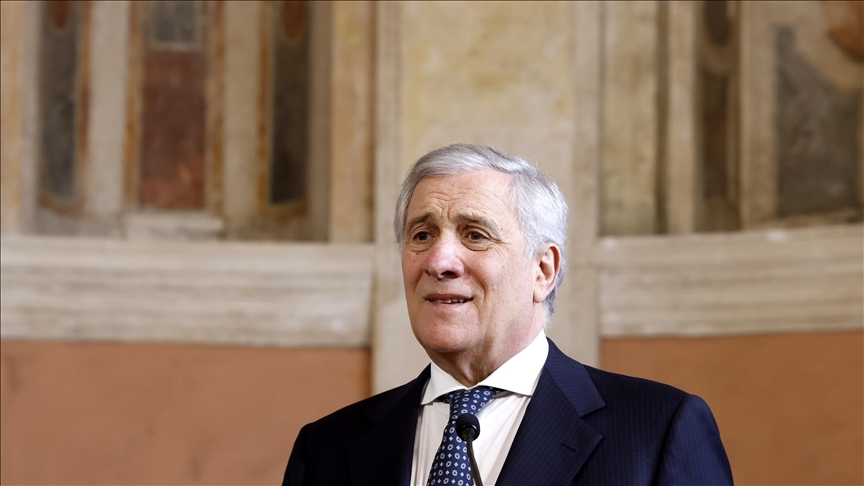Europe has right to sit at negotiating table: Italian foreign minister
Economic sanctions imposed on Russia give Europe leverage, says Antonio Tajani, who also serves as deputy premier
 Antonio Tajani
Antonio Tajani
ISTANBUL
Europe has the right to be involved in peace negotiations between Russia and Ukraine, Italy’s foreign minister said Monday.
Speaking to Italian daily La Stampa, Antonio Tajani – who also serves as deputy prime minister – stressed that the situation remains highly fluid and urged Europe to stay calm and unified.
He said the EU’s massive and unprecedented sanctions against Russia give the bloc leverage to sit at the negotiating table.
"This is clearly a fundamental lever for us to be in a position to claim a role," Tajani said.
Addressing concerns about a weakening alliance with the US, Tajani noted that during his meetings at the Munich Security Conference with US Secretary of State Marco Rubio and Keith Kellogg, the US special envoy for Ukraine and Russia, he got no indication that Europe would be excluded from peace talks.
"Rubio himself publicly acknowledged the need to involve us and Ukraine," he added.
While acknowledging that Europe will not be present at the upcoming talks in Riyadh, Tajani said: "Negotiations will not be closed in a few days; it will be a matter of months. Today, we are still at the level of preliminary actions."
He also questioned whether the US would truly disregard European input, stressing that European officials had sent a clear message in Munich that Ukraine and Europe must be involved.
On French President Emmanuel Macron's emergency summit on Ukraine on Tuesday, Tajani described it as a necessary step to coordinate a common European stance.
"For example, we cannot fail to provide responses on the issue of European defense," he said, reiterating Italy's long-standing commitment to the topic.
Italian media has reported that Prime Minister Giorgia Meloni was initially hesitant about attending the Paris summit.
La Repubblica daily suggested she was displeased with its format and the exclusion of Baltic countries.
The report also indicated that Meloni was wary of appearing to oppose US President Donald Trump and preferred a neutral venue such as Brussels instead of Paris.
According to Corriere della Sera daily, Meloni viewed the summit’s format as "weak" but ultimately decided to attend after consultations with European leaders and NATO Secretary-General Mark Rutte.
La Stampa noted that while France and Poland advocate a firmer stance, the UK and Italy favor a more cautious approach.








